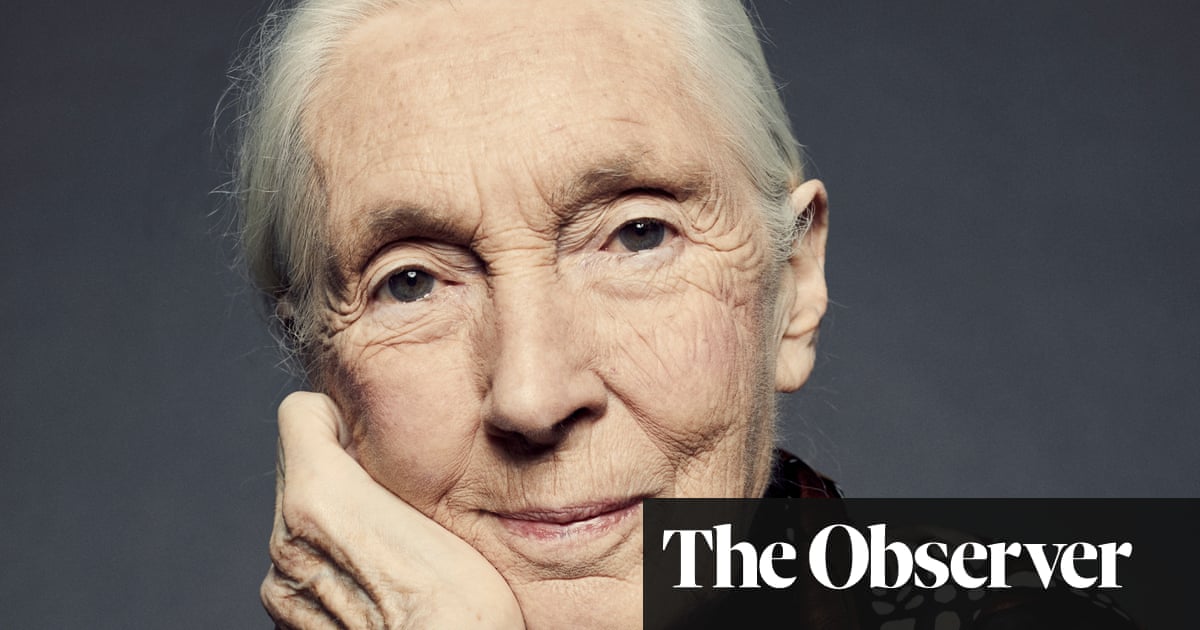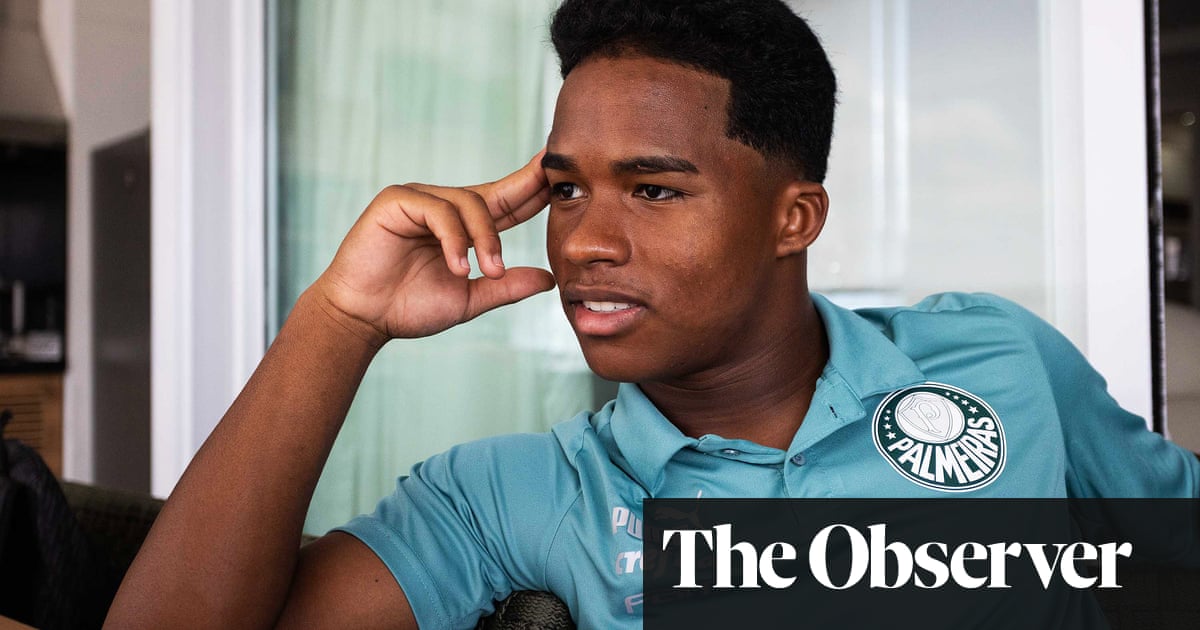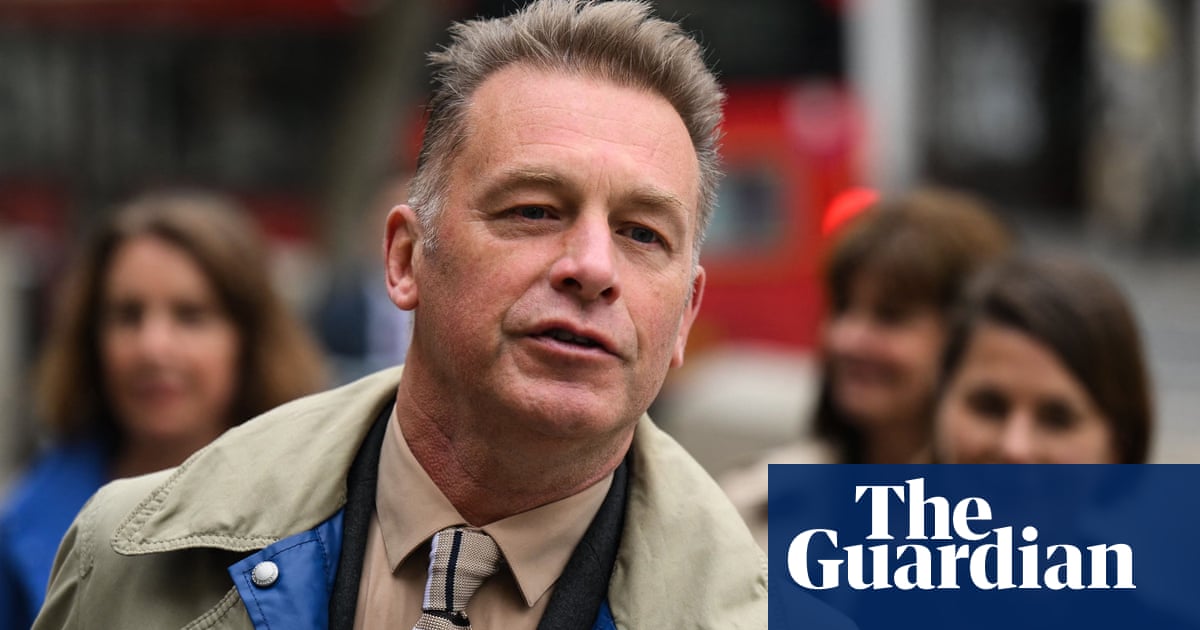
Over the years, the BBC has seeded and nurtured some singular specimens of presenter. Chris Packham, after a decade of Springwatch, has begun to grow into that space in the public mind once occupied by, say, John Noakes or Patrick Moore or John Peel. He’s blunt and lyrical and you know for sure that the camera is only eavesdropping on his authentic life – in much the same way that he peers in at nesting boxes and fox dens – and once it’s turned off, he goes on just the same.
He’s invited me down to lunch in his natural habitat on the edge of the New Forest. He’s never strayed far from here for very long. He grew up on the other side of Southampton cycling to the woods, living an I-Spy childhood, scooping up tadpoles, examining beetles, for a while with a beloved kestrel as his closest friend. He went to university in Southampton and for many years he rented a thatched cottage a mile or two up the road from here; in between lockdowns, he traded those low beams and history for the clean lines of his new angular home – all decking and cladding and sheet glass – set in a couple of acres of wooded garden and bordered by a stream.
He can’t cook (“people always think I’m making an attempt on their life”) so lunch – a delicious bowl of asparagus tabouleh with mint and coriander and bulgur wheat – is being made by his longtime partner, Charlotte Corney, who runs the Wildheart Animal Sanctuary on the Isle of Wight. They’ve been together for a decade, though always a ferry ride apart, having met through the zoo she inherited from her parents.
Packham, you have the sense, is perhaps not always the easiest man to provide for. “He used to only eat salad,” Corney says. He became vegan a couple of years ago – giving up cheese coincided with selling a farmhouse that he owned south of Bordeaux (“a man around the corner kept goats and used to bring round this plate of half a dozen conker-sized cheeses, which were impossible to resist”). He eats no fruit at all, shudders at the thought of it, so pomegranate seeds are a side dish here rather than part of the main bowl, and he winces and looks away from the strawberries that Corney brings out afterwards. It was only a few years into their relationship that Packham explained that he had been diagnosed in 2005 as having Asperger’s syndrome – which no doubt helped to explain both his concentrated passion for all things living, and his sometimes apparent indifference to those closest to him.
Lockdown suited him just fine, he says. His stepdaughter from a previous relationship, Megan McCubbin, lodged with him and his two black poodles, Sid and Nancy. On the first morning after the shutters came down, last March, he wandered out into the garden and did an impromptu piece to his phone screen about the celandines that had burst into life in the cottage garden under a horse chestnut tree “wanting to share them with people who were waking to a new kind of fear”. That Twitter video caught the eye of a young fan and producer, Fabian Harrison, who suggested that Packham made it a regular ad hoc broadcast. By lockdown two the daily output of the Self-Isolating Bird Club – which Packham presented alongside McCubbin – was reaching 8 million people worldwide. It has spawned a collaborative book, Back to Nature, subtitled “How to love life – and save it”, written by the pair of them, a personal handbook for an urgent rebooting of our relationship with the natural world.
“We were sort of locked in that little utopian bubble,” Packham says of the past year or so. “We’d go out once a week to get food for my father, who is on his own, and Megan was doing all the Zoom pub quizzes and so on. But I was pretending I was 14 again – the last time I had so much time in one place consecutively. When you are away for a week here and you go out into the woods, it’s like you’ve gone into a room and someone’s redecorated it, everything has changed. Last year, walking through that space, I felt that change in a much more comfortable way.” Each evening, at midnight, Packham, 60, reconnected with another formative aspect of his adolescence, trawling through his extensive 1970s record collection and picking a track to play to his Twitter followers on #PunkRockMidnight.
The other good thing about the forced isolation, he says, leaning back from the lunch table in a patch of shade from the hot sun, is that it gave him a bit of a breather from protesting. In recent years he has become a natural frontman for Extinction Rebellion, though he does not claim to support every one of its aims or methods. “A lot of the – necessary – campaigning that we were doing was highlighting problems, rather than offering solutions,” he says. “The Self-Isolating Bird Club felt good because it was a solution to a problem for a lot of people. We could stop shouting at people, put our placards away for a bit.”
Packham is happy to accept that in some quarters he might be thought of as an extremist, just so long as it opens the conversations about climate and the environment that are desperately needed. The Wild Justice group he founded with fellow conservationists Ruth Tingay and Mark Avery aims to bring a similar crowdfunded edge of litigation to wildlife issues as Jolyon Maugham’s Good Law Project does to governance. In looking for legal ways to protect ancient woodlands from HS2, or stop the cull of badgers, or regulate against the environmental damage of field sports, he knows he is in for long and exhausting battles.
Wild Justice’s most successful campaign so far saw a new licensing regime for the indiscriminate shooting of a range of birds including jays and magpies in England. He was undeterred by the vicious threats against him from opponents that included an incident in which two dead crows were left hanging at his garden gate. “You’re asking people to change their minds,” he says, “and more quickly than they want to – a tiny percentage of those people are going to lash out and be extremely unpleasant.”
He also refers to an article in that morning’s Telegraph in which his most vociferous opponent, the recently ennobled hunting, shooting and fishing advocate Ian Botham, has called him out for once working as a tour guide for a long-haul travel company. “It’s just bullshit. The thing he’s talking about was something that I did four years ago. But if you spent all your time trying to deal with the negative stuff, you wouldn’t have time to do any good…”
He admits that his intransigent punk spirit fuels some of his campaigning – though that is hard to separate from his Asperger’s (he has noted his kinship with Greta Thunberg in this regard, who calls the condition “her superpower”).
“People like me,” he says, “have a very aggravated sense of injustice, and I think it’s been highly motivational in my life.”
His bestselling memoir, Fingers in the Sparkle Jar, and a subsequent BBC documentary have made him as much in demand as a speaker on mental health as on nature-watching (he doesn’t separate the two necessarily). He has another BBC film in production on these issues, which he hopes might help kids who grew up, like him, knowing they were different, but not knowing why.
“I’m not an expert on autism. I’m someone that has it,” he says. “I can only ever talk about my experience.” In doing so he realises that “there will be things that my family, which is basically my dad and my sister, Megan and Charlotte, will probably find a little bit uncomfortable”. Most notably perhaps, his habit of suggesting candidly that the greatest loves of his life have been his dogs and his kestrel. Corney is long used to his ways, of course, and watching them together reminds you that love comes in many different forms. Packham has a habit of marking each meal she makes out of 10. “Well?” she wonders. He thinks for a bit, ponders the pomegranate seeds. “Six maybe seven,” he says.
He understands himself enough to smile at his bluntness, and alone he speaks very fondly of Corney – and of his stepdaughter McCubbin, who has been a companion on field trips across the world since she was a toddler.
“I have a number of sentimental treasures,” he says. “Not a great number. I’ve got the handwritten lyrics to Shout Above the Noise by the punk band Penetration. And then alongside it, I’ve got a little Post-it note in a frame that Megan once left stuck to the front door.” It says simply: “Gone to rebel”. She is clearly a woman after his own heart.
Back to Nature: How to Love Life and Save It is out now in paperback (Two Roads, £8.99). To support the Guardian and the Observer order your copy at guardianbookshop.com. Delivery charges may apply.












